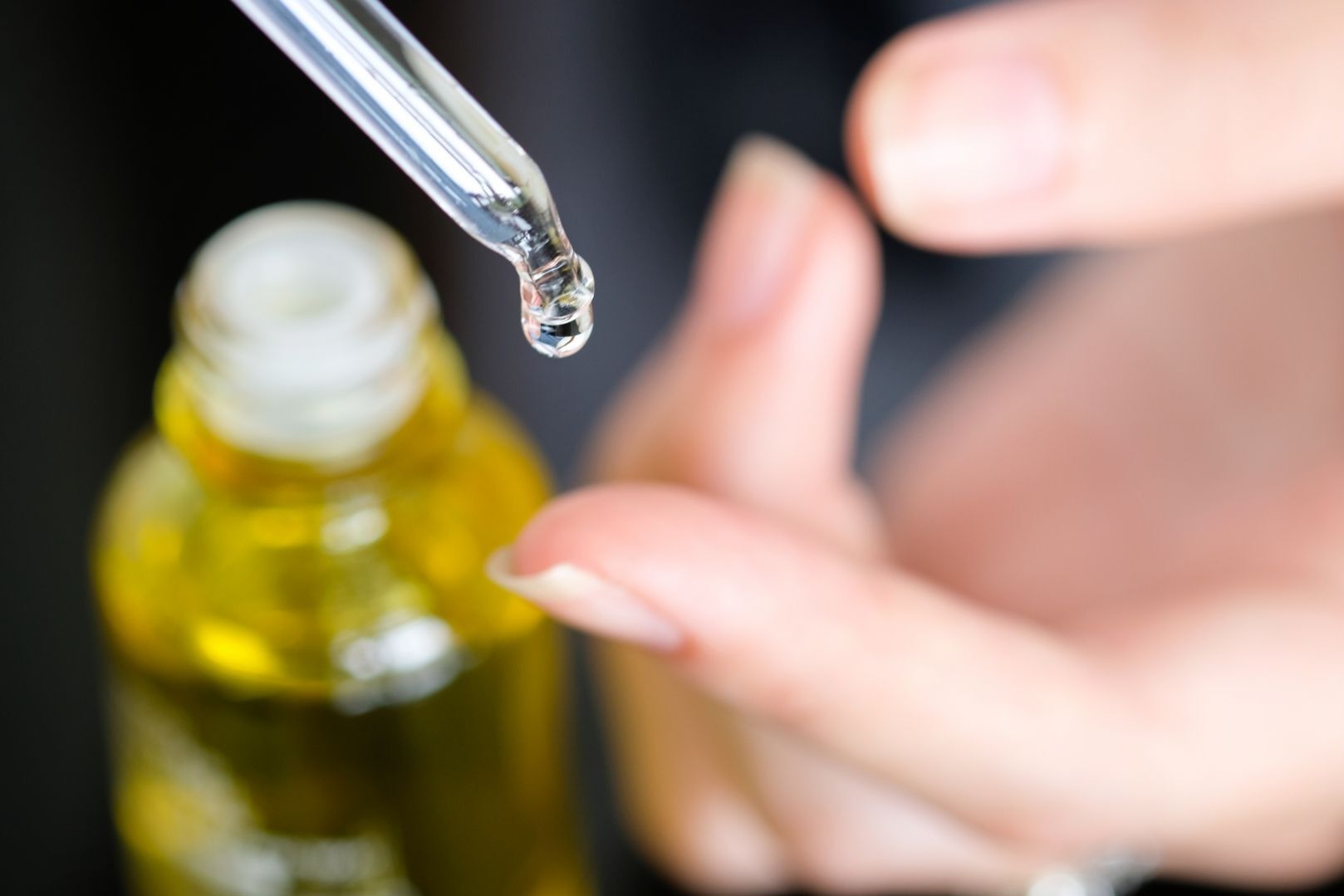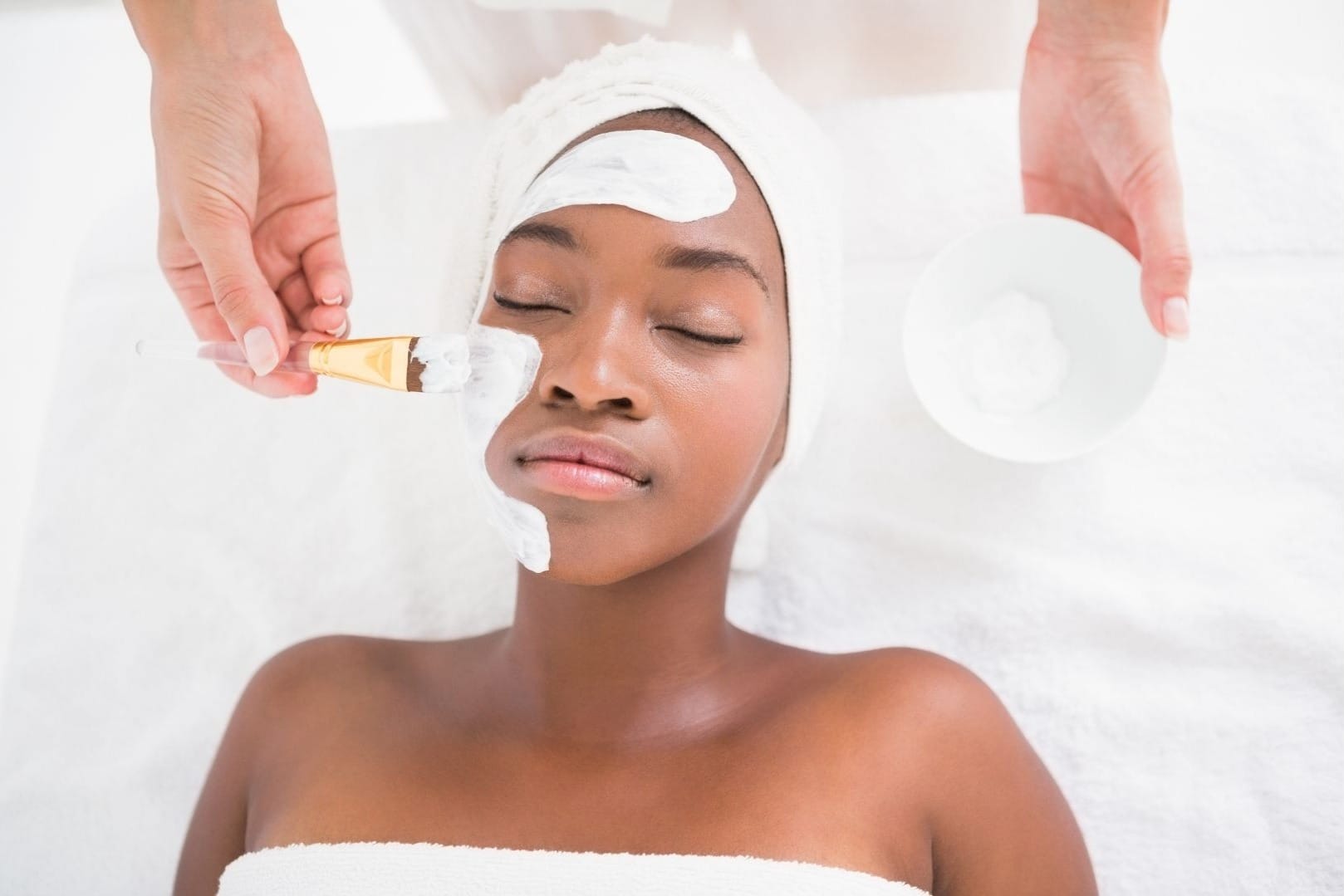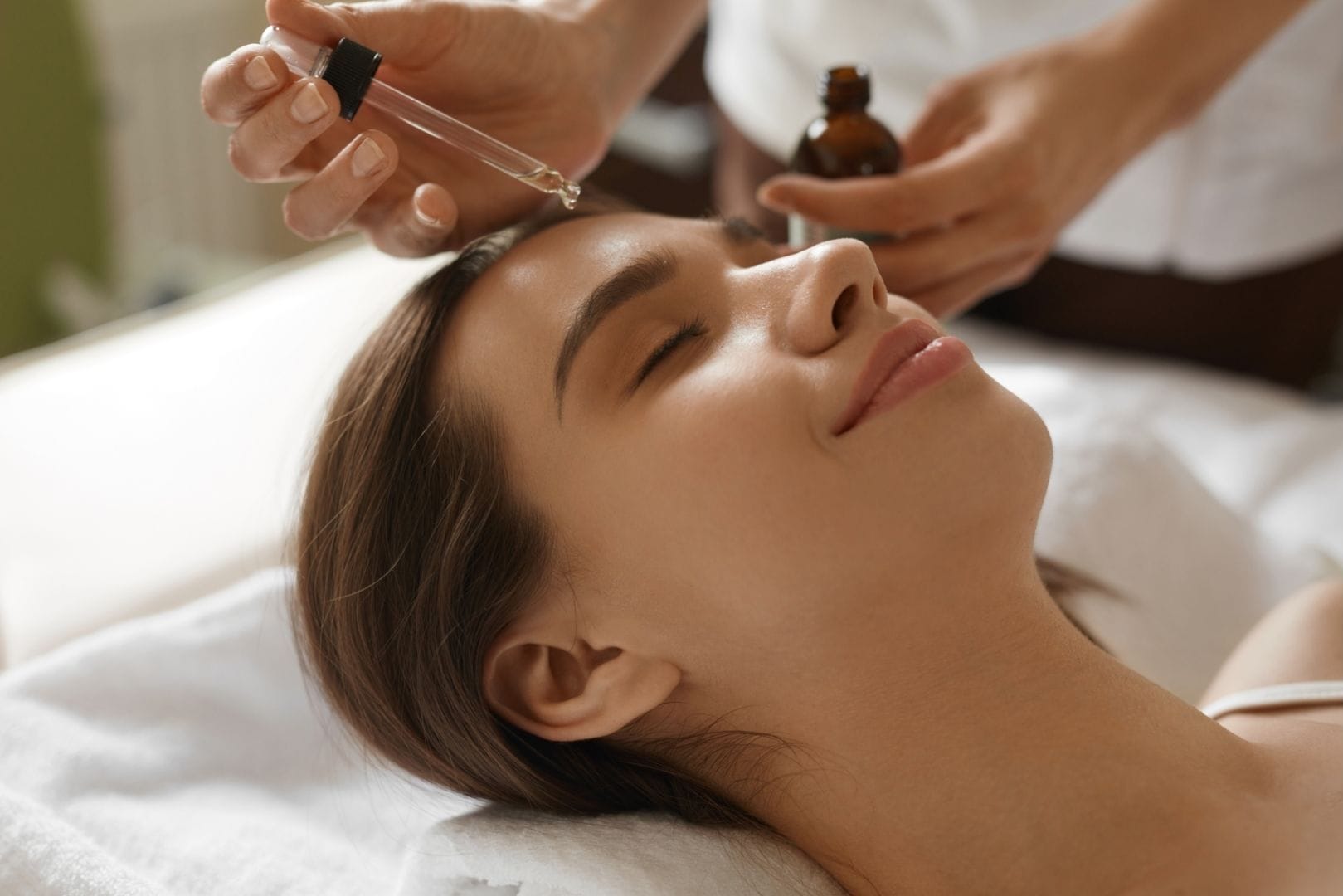
How Niacinamide (Vitamin B3) Helps Your Skin
Since we’re in the business of perpetually seeking better and brighter skin, we’ve known about the glow-worthy benefits of vitamin C for a while now. And if you were to peruse any popular skin care routine, you’d more than likely find at least a few elixirs with said superstar ingredient. After all, science doesn’t lie: It works. However, vitamin C isn’t the only vitamin that’s amazing for your skin. Apparently, vitamin B3 (also known as niacinamide) is another dark horse when it comes to turbo-charged brightening benefits.
We should all actually be obsessed with niacinamide—it’s a powerhouse ingredient for brightening and hydration that I think gets overlooked a lot in relation to vitamin C. So, what’s there to know? Hint: A lot.
To find out what makes vitamin B3 tick in regard to its under-the-radar skin benefits, keep reading…
VITAMIN B3 (NIACINAMIDE)
TYPE OF INGREDIENT: Brightener
MAIN BENEFITS: Brightening, prevents signs of aging, reduces acne
WHO SHOULD USE IT: In general, anyone who wants their skin to be bright or prevent aging
HOW OFTEN CAN YOU USE IT: You can use it in both morning and evening
WORKS WELL WITH: When using vitamin B3, it is good to combine it with other stable and powerful antioxidants, such as Camellia Sinensis (Green Tea) Catechins, Quercetin and Tocopherol. It may also ease irritation related to retinol and skin redness generally.
DOESN’T WORK WITH: N/A, it works well with everything
What is Vitamin B3?
When we think about skin benefits and vitamin B3, we’re referring to a specific form of B3 (an amide) called nicotinamide (also known as niacinamide). Nicotinamide is an essential water-soluble vitamin, which is not synthesized in the body, meaning we have to eat it to receive its benefits. Additionally, the vitamin has been incorporated into skin care products since our bodies don’t produce it on their own. Therefore, if we want to reap the brightening benefits of nicotinamide, it needs to be ingested via supplement or applied topically to the skin: Nicotinamide is in some topical formulations and can be used in the morning or night as a cream, typically after gentle cleansing. Vitamin B3 can also either be applied prior to or into your go-to night cream.
The Benefits of Vitamin B3
In short, it’s incredibly restorative. Nicotinamide helps restore cellular energy, repair damaged DNA, and reduce the immunosuppressive effects of sun-induced UV rays. With a fountain of youth likeness, we compare vitamin B3 to that of a “well-oiled machine,” fighting off internal and external stressors that can ultimately lead to the deterioration or breakdown of our skin and premature signs of aging like discoloration and wrinkles.
Concerning brightness specifically: Nicotinamide has been shown to prevent the transfer of pigment within the skin, which can help reduce brown spots. Less redness (thanks to vitamin B3’s anti-inflammatory properties), preserved hydration, a strengthened skin barrier, and the improved synthesis of healthy fats (key for glowing skin) are other benefits.
It can even be used by sensitive skin types or those with other conditions such as rosacea or eczema. It can also be found in sunscreens and is a good option for people who are concerned about irritation from their skin care products or have difficulty using creams due to allergies. The oral version can also be used to treat acne—and is great when oral medications such as antibiotics aren’t well tolerated.
Vitamin B3’s Skincare BFFs
Another lesser-known fact is that most skin care products work better when paired with other ingredients. Concerning pigmentation specifically, nicotinamide is best paired with other ingredients like hydroquinone, kojic acid, arbutin, and soy, which can work synergistically on the ‘pigment pathway’ to best help clear brown spots and discoloration.
Nicotinamide/Niacinamide vs. Nicotinic Acid
However, here is one common misconception when it comes to B3 and its (multiple) monikers: Nicotinamide is a specific amide (a particular chemical structure) form of B3. It’s not niacin, the acid form of this vitamin. Niacin is much more easily found at the drugstore but occasionally has the unpleasant side effect of flushing that nicotinamide doesn’t have. Not into a red face? Make sure to scan your ingredient lists, and don’t assume that despite the lack of “-amide” it’s still the same ingredient.
Side Effects of Vitamin B3
Niacinamide is a powerful ingredient for both skin moisturization and skin brightening. But when used in high concentrations in a skin care formulation, it may cause skin irritation. So, it’s recommended to use low concentrations (1-2%) of vitamin B3 in a formulation. Basically, don’t overuse, or you might experience some redness or (even worse) dermatitis.
How To Use It
The key to reaping vitamin B3s benefits comes down to choosing your product selection wisely. Our skin is smart and since its job is to act as a barrier—protecting our bodies from potentially harmful invaders—not all topical formulations may boast the technology to effectively penetrate.
Any topically applied active ingredient must be formulated in a way so that it can get into the skin to where it’s needed. If nicotinamide successfully penetrates this barrier, it can be effective. Look for B3 products with scientific studies to back them up and not just appealing ingredient lists. You should use it in the morning, and it’ll likely be contained in products that boast brightening properties.
For any skin care regimen questions or product suggestions, you can always call Botanica Day Spa and get the scoop from aestheticians whose job is to help clients love their skin and improve it!
Love,
Gen



Leave a Reply